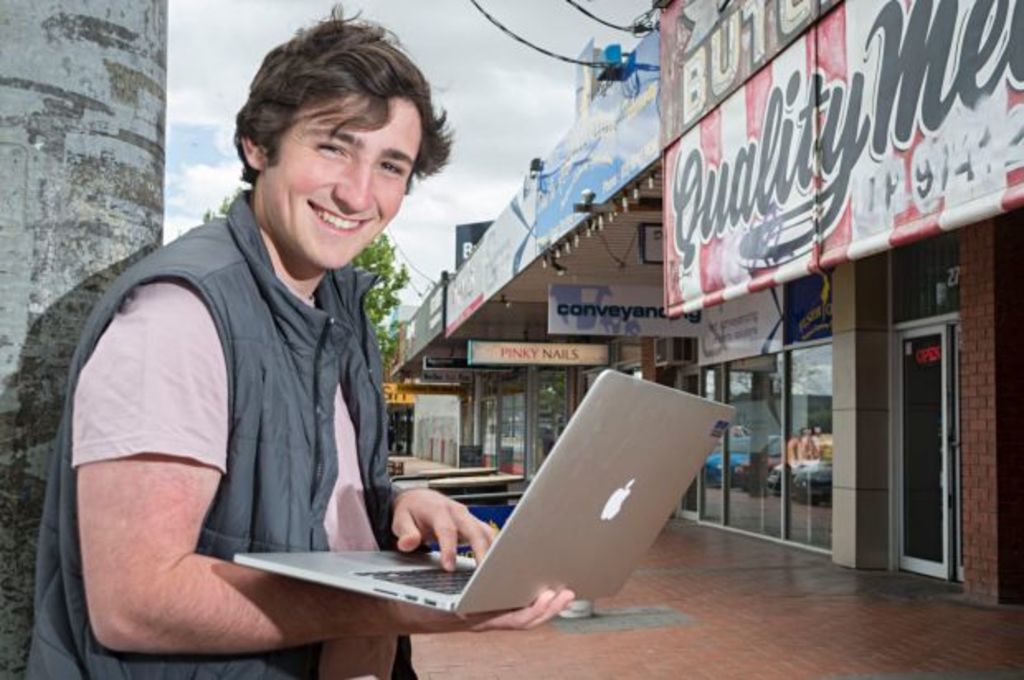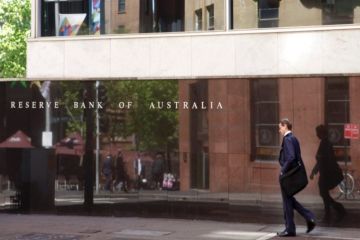Why Gen Ys are getting shortchanged on money management

When it comes to money, Cooper Watkins and his stepsister Olivia Flint are polar opposites.
Cooper, 17, is fascinated with finances. He wants to know how to make money, how to invest it, how to buy a house, and what’s really going on with interest rates.
“I’m looking at getting into the property market as quickly as possible, even just getting a really crappy investment property,” the year 11 student says.
“He will chew your ear off about mortgages,” says his stepmother, Sheridan Watkins.
Olivia, also 17, doesn’t share the same enthusiasm for financial planning. Her family jokingly refer to her as “liquid money” and Ms Watkins was mortified the day she learned her daughter had discovered AfterPay, a payment service with the slogan “Shop Now. Pay Later”.
Ms Watkins worries Olivia may join the ranks of thousands of other teenagers and millennials who hit adulthood with little understanding of how to manage their money.
According to an OECD report released earlier this year, one in five 15-year-olds in Australia do not have basic financial literacy. The research found some students struggle to read payslips and detect financial scams. By international standards, Australian students are slipping behind the rest of the world in literacy and numeracy.
But financial illiteracy is not restricted to the young: a recent Australian Securities and Investment Commission report found 40 per cent of adults do not feel confident managing money and 20 per cent have difficulty understanding financial matters. Just last month, UBS analysts warned up to one-third of people with interest-only mortgages may not properly understand how the loan works. There is also widespread concern some may not have planned for possible rate rises in the coming years.
Anthony Millet, chief executive of property investment firm BrickX, says the statistics are “pretty devastating” and show many Australians are “quite disillusioned” with finance and, in particular, the property market.
The responsibility to educate people about finance lies not only with schools, Mr Millet says, but with the wider community, banks and the finance sector.
“It’s about them building those skills just beyond budgeting — which they tend to do quite well at university — to actually thinking about ‘how am I going to build wealth’ and ‘how am I going to set myself up for the future’.”
Financial literacy is already taught in schools, embedded within a range of school subjects up until year 10. But there is debate about whether the curriculum is adequate.
The Australian Council for Educational Research says educational programs should be flexible, and both age- and context-appropriate.
“This means teachers might need to be more attuned to where their students actually are, in terms of financial literacy, and be able to use different units as appropriate, rather than use a ‘one size fits all’ approach,” says director of educational monitoring and research Sue Thomson.
Although Cooper has enjoyed studying economics, he says the curriculum is not practical enough and didn’t cover “basic stuff about how to live as an adult”.
Ms Watkins fears the education system is leaving young people ill-equipped to deal with financial situations they will come up against when they leave school.
“There’s no doubt that the school criteria doesn’t prepare you,” she says. “Cooper is a sports nut like a lot of his friends, and it would appear their first introduction to finance is through betting apps,” she says.
Financial Counselling Australia head Fiona Guthrie says credit cards and payday loans are “debt traps” for the young, and it is increasingly difficult to obtain reliable and independent financial advice.
Ms Watkins says she and her husband will continue to talk openly about their finances with their children, and encourage them to get involved and ask questions.
“Finance is a little bit like medicine, if you hear a term you don’t understand you don’t want to feel like an idiot, so you don’t ask.”
We recommend
We thought you might like
States
Capital Cities
Capital Cities - Rentals
Popular Areas
Allhomes
More







